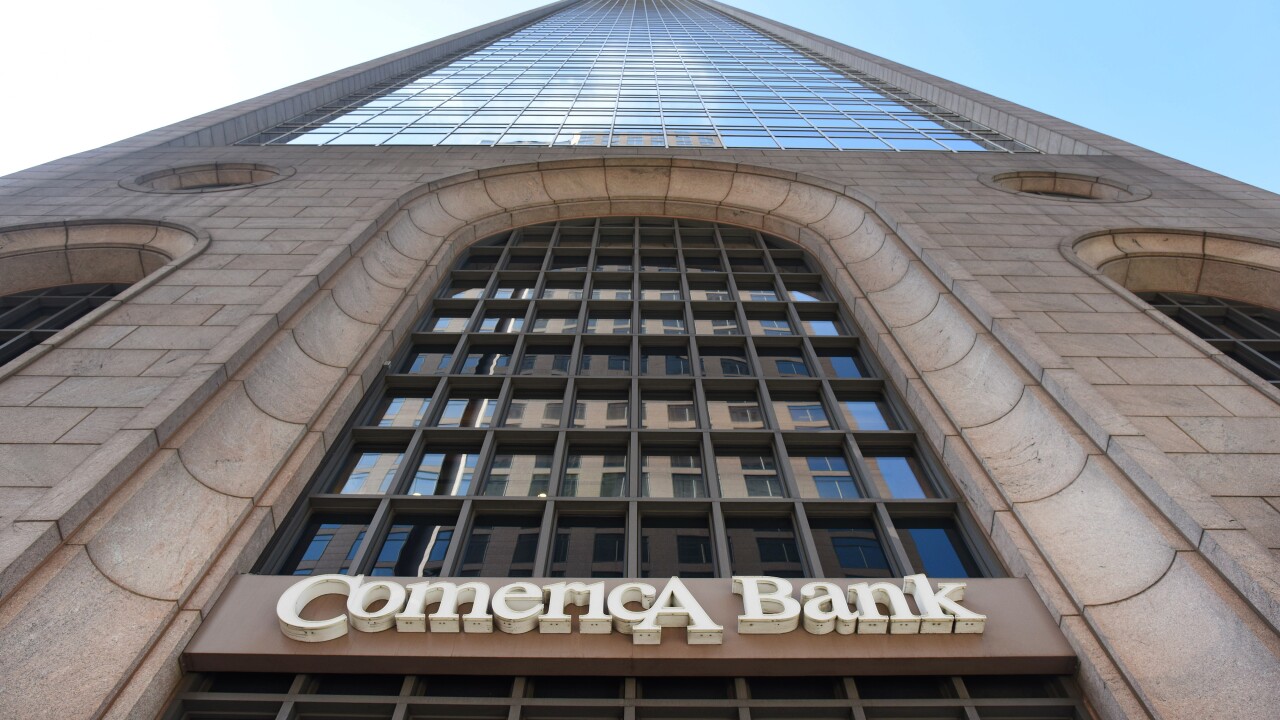
Comerica Chairman and CEO Curt Farmer and Chief Financial Officer James Herzog have been sued by shareholders who allege the executives made materially false and misleading statements about the Dallas company's oversight of a Treasury Department program.
A lawsuit filed this week in U.S. District Court for the Central District of California alleges that Farmer, Herzog and the $90.8 billion-asset company itself broke federal securities laws by failing to disclose that Comerica violated its contract to oversee Direct Express, a Treasury program that provides federal benefits on prepaid cards to millions of unbanked Americans.
The 33-page lawsuit alleges that Farmer and Herzog discussed fraud and reputational risk in general terms in Comerica's 2020 annual report "rather than as a pressing issue as it related to the Direct Express program."
In 2020, Comerica officials privately acknowledged significant compliance failures in the company's operation of Direct Express, according to
"By the time the 2020 annual report was filed, company executives were raising internal concerns regarding potential company violations of Regulation E due to inadequate fraud prevention and responses relating to the Direct Express program," alleges the suit, which was filed Monday.
The complaint said that Comerica and its top executives had attested that the company's management policies and practices "were designed to comply with current regulations."
"This statement was materially false and misleading," the complaint alleges. "At the time [the 2020 annual] report was filed with the [Securities and Exchange Commission], the company knew that it was not in compliance with the federal contract because a company vendor was conducting certain operations from Lahore, Pakistan, rather than, as was required, in the United States."
A Comerica spokesperson did not respond to a request for comment Friday. But in June, Farmer responded by sending American Banker a
Laurence Rosen, a lawyer who represents the lawsuit's plaintiff, a shareholder named David Ramos, did not respond to a request for comment.
The lawsuit said that "as a result of defendants' wrongful acts and omissions, and the precipitous decline in the market value of the company's common shares, plaintiff and other class members have suffered significant losses and damages."
A Comerica Bank executive admitted to major failures in its handling of the Treasury Department's Direct Express program, including data and resolved fraud disputes sent to a vendor's office in Lahore, Pakistan, a "serious" contract violation.
Comerica's stock price dropped 7.5% over a two-day period to close at $36.10 a share on May 30. On Friday, Comerica's stock closed at $45.92, down about 1%.
Comerica has had a contract to run the Direct Express program since 2008. The Treasury's agreement with the company states that all services provided "shall be performed in the United States or its territories." Comerica has contracted out the day-to-day operations of Direct Express to two vendors: i2c, based in Redwood City, Calif., and with an office in Lahore, Pakistan, as well as Conduent, a publicly traded conglomerate based in Florham Park, N.J.
Comerica continues to deal with fallout from the revelations of how it handled the Direct Express program. Last year, a federal judge certified a class action against Comerica and Conduent brought by Direct Express cardholders who claimed their accounts were drained of thousands of dollars from 2015 to 2022 due to fraud. The class action, filed in the U.S. District Court for the Western District of Texas, alleges that Comerica and Conduent denied refunds to cardholders who alleged fraud on their accounts.






